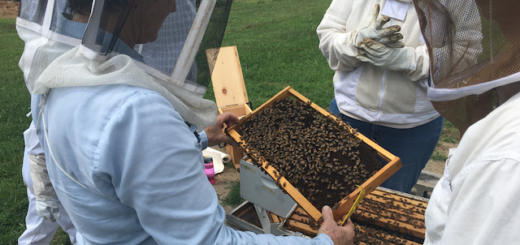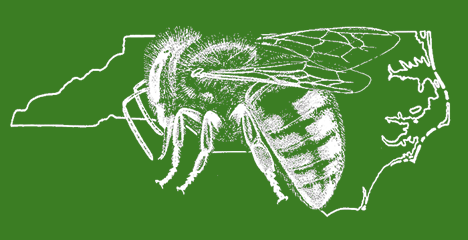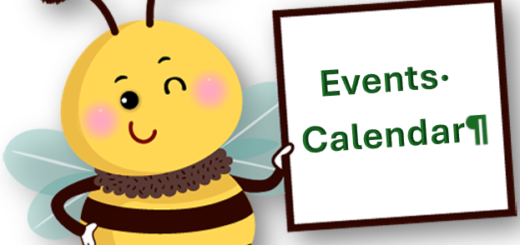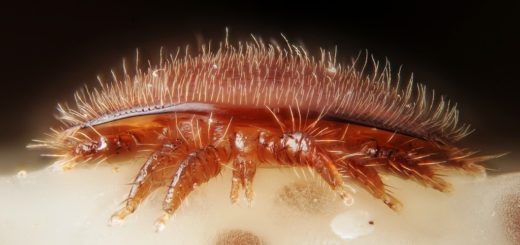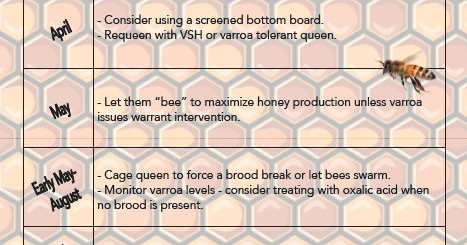Getting Ready for Spring
By: Pat Weisbrodt, NC State Extension Master Gardener, Master Beekeeper & CCBA member
YOUR FEBRUARY TO-DO LIST
Tips from the late Dr. John Ambrose (NC State, Department of Entomology):
- Your boxes, frames, and foundation should be ready to go.
- On warm days, check hives for brood. As the cluster grows, keep frames with eggs in the middle and the capped brood in the outer position of the cluster.
- On strong hives you can add brood chambers with drawn comb.
- Reverse brood chambers if lower box has empty comb.
- Provide emergency feeding-never allow food stores to drop below 15 pounds of honey.
- A colony rearing brood will use 10 pounds of honey a week, and they need pollen to support colony build up.
- Read bee magazines and books. Attend local bee club meetings.
SUPPORTING COLONY BUILD UP MOVING INTO SPRING
As you are all well aware, January 2018 was extremely cold. Due to the prolonged exposure to very low temperatures, even many colonies that had honey stores, froze. The reasons? It was too cold for the cluster to move to food, or colonies didn’t have enough food. Some CCBA beekeepers reported inspecting dead hives in which honey was available just inches from the cluster, but the bees were unable to access it due to the extreme cold.
Many beekeepers will feed their hives to stimulate increased brood production, reasoning that facilitating super hives at the nectar flow will maximize honey production. But, there can be a couple of different outcomes to this strategy, depending on the weather:
- The weather stays on the warm side — the hive grows quickly; honey and pollen are available, and the hive does well.
- Cold spells – the hive grows quickly, but a cold spell prevents the cluster from covering all the brood, or the brood chills and dies. In this scenario, the bees will have wasted a lot of food, energy and time.
Remember, too, that a quick buildup in bee numbers also can mean a faster buildup of varroa mites.
Some suggestions:
- Feed hive only if honey and pollen stores low so that you do not influence the brood rearing.
- When making decisions as we approach Spring, new beekeepers are advised to ask every beekeeper you can for recommendations, and find or work with your mentor!
- If you’ve lost your bees, get on a list for nucs and packages.
- If your bees lived and you had to treat last year, maybe order a couple of VSH queens this year.
- Be thinking about plants you can add to the garden that will help the bees across all seasons of the year.
- Finally, pay attention — be a beekeeper, not just a bee haver!

